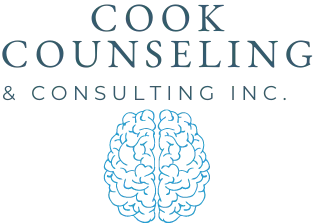Did you know that over 50% of youngsters (aged 18 to 24) are experiencing moderate to severe symptoms of teen depression and anxiety? However, despite the awareness, studies have shown that even today, young people are less likely to seek help for depression. This is because of the fear of judgment, the social stigma of mental illness, the lack of resources, and the inability to understand the symptoms of depression. In this article, we will discuss why young people don’t get help for depression.
1. Difficulty Understanding
Teen depression symptoms include frequent mood swings, feeling frustrated, sad, hopeless, irritable, annoyed, tired, and guilty, having low self-esteem, insomnia, appetite changes, agitation, use of drugs or alcohol, and anger outbursts. While these signs indicate teen depression, most young people consider them completely normal. Even if the kids complain, their parents and teachers tend to misinterpret their mental health episodes, blaming the hormonal changes. In addition to the lack of support from adults, teenagers don’t know much about the resources or services that can help them diagnose and treat depression.
No matter in which part of the world you live, if you are having any of the aforementioned teen depression symptoms or know a loved one who is suffering from this condition, please reach out to your nearest healthcare provider.
2. Inability to Express Their Feelings
Most teenagers, when asked about depression, said that they felt scared of telling others how they felt, especially their parents, friends, and family. Young people often find it difficult to express their feelings through words, so they either ignore the teen depression symptoms or wait for their loved ones to bring up the subject themselves. In addition to the communication gap, feelings of hopelessness and shyness create more barriers, resulting in teenagers dealing with depression on their own.
3. Concerns about Confidentiality
Even though most youngsters want to be treated for depression, the fear of others finding out prevents them from getting the necessary psychological care. According to a survey, 18% of Native American and 19% of Hispanic participants reported fear of others finding out that they were being treated for a mental health illness.
Simply put, young people often fear that their therapist or healthcare provider might share their personal information and diagnosis with parents, friends, or employers, which might portray them as mentally sick. However, this is only a misconception, as the doctor-patient privilege binds the healthcare provider from releasing your personal information without authorization.
4. Fear of Commitment or Medication
In a study, about 23% of youngsters cited that the fear of being committed or having to take medication kept them from visiting a mental health specialist for teen depression. Misperceptions and confusion about the treatment for depression deterred young people from getting the help they needed. Many teenagers (especially boys) also feared that others would consider them weak or attention-seekers, so they tried coping with the symptoms on their own.
Wrapping It Up!
Out of all the above-mentioned reasons, most young adults don’t get professional help for teen depression because of the growing need for autonomy and fear of being judged. Nonetheless, it is important to remember that depression is a treatable condition, and many resources are available worldwide. If you are scared of others finding out, you can schedule an online consultation with a mental health specialist to get the necessary treatment from the privacy of your room.
References
Forbes. (2022). 50% of Young Adults Report Symptoms of Depression, New Covid-19 Survey Shows. Retrieved from Forbes.
Mayo Clinic. (2022). Teen Depression. Retrieved from May Clinic.
https://www.mayoclinic.org/diseases-conditions/teen-depression/symptoms-causes/syc-20350985
National Library of Medicine (NIH). Race and Beliefs about Mental Health Treatment Among Anxious Primary Care Patients. Retrieved from National Library of Medicine.
